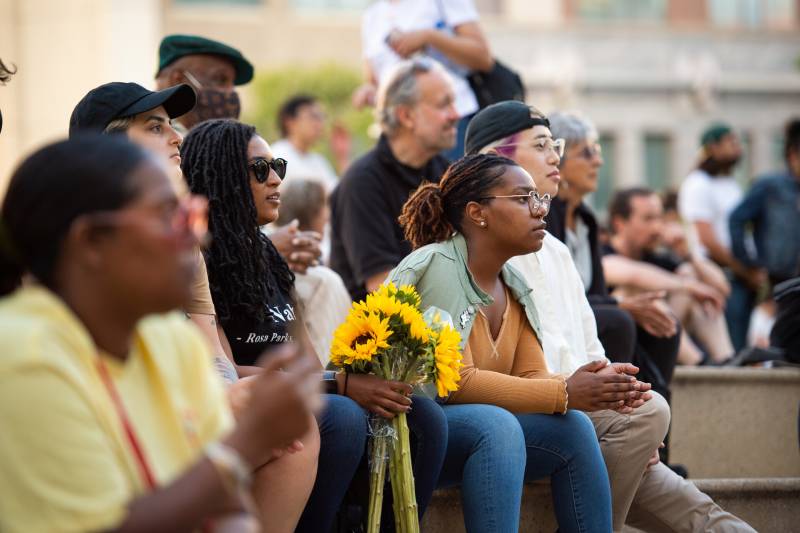The brass and woodwind instruments played by members of the Oakland Second Line Project in front of City Hall on a balmy Wednesday evening sounded jubilant — but this performance wasn’t about revelry.
That’s because the people gathered in Frank Ogawa Plaza were there to eulogize the 10 people killed by a white supremacist gunman in the May 14 racist massacre in Buffalo, New York.
A total of 13 people were shot, almost all of them Black.
Vivian Yi Huang, who is Chinese, felt it was important for her 3-year-old daughter, K’mara, who she said is a mix of Chinese, Samoan and Black, to be at the vigil.
“My daughter represents so much of the hope that I have,” said Huang, co-director of the Asian Pacific Environmental Network, an environmental justice organization whose primary focus is creating healthy living environments for Asian immigrant and refugee communities. “I feel like it’s so important for her to be in a space where people are really celebrating the dignity and the worthiness and value of all of us that’s inherent in us as human beings.
“We as a community need to continue fighting white supremacy to make that real.”
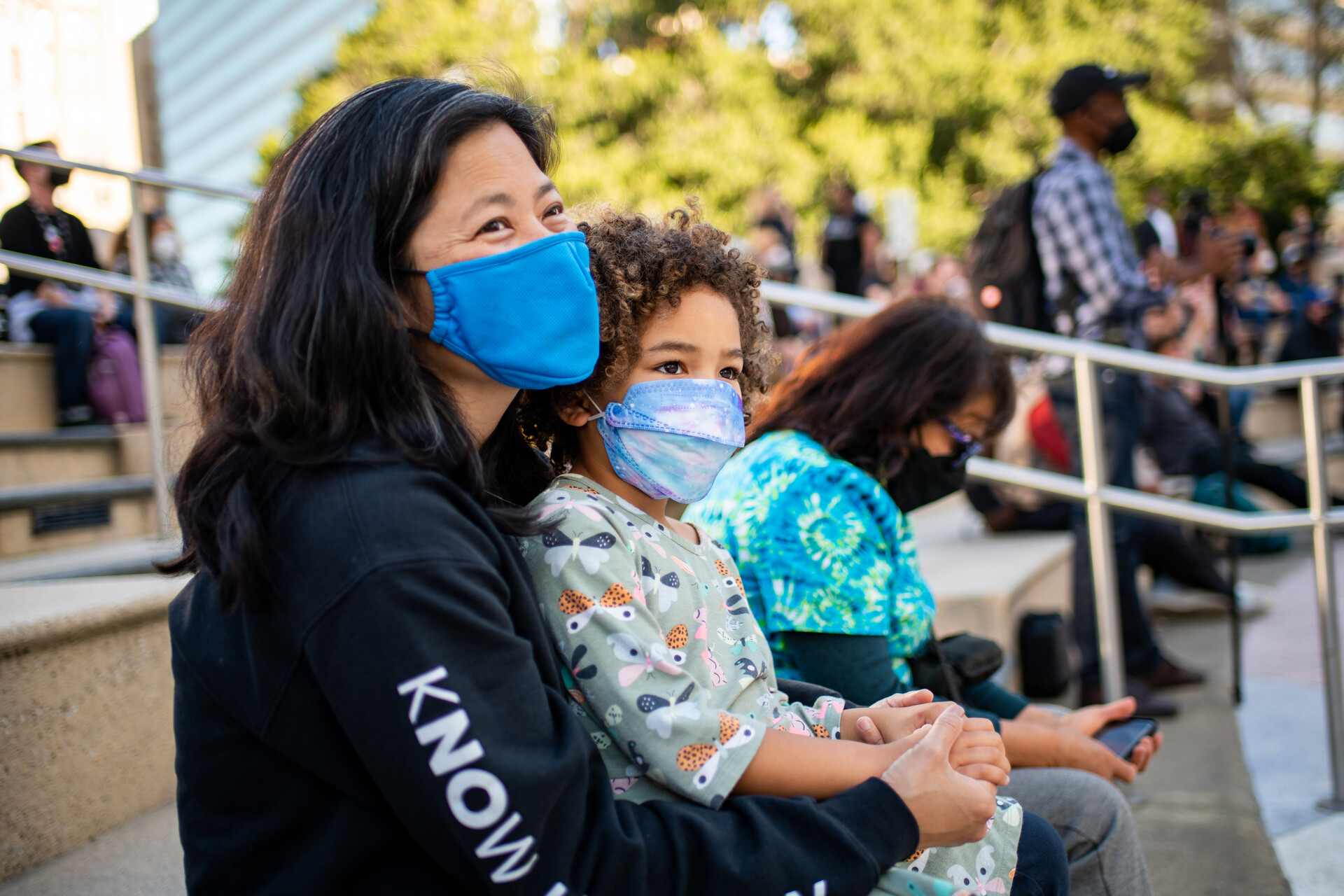
The second line, with its chest-rattling bass drum, is the triumphant sound of Blackness, a sound that originated in West Africa.
It’s a sound that survived the Atlantic slave trade.
It’s a sound that mourns and “celebrates the lives of Black people,” Cat Brooks, Oakland activist and co-founder of the Anti Police-Terror Project, the vigil’s organizer, told the crowd.
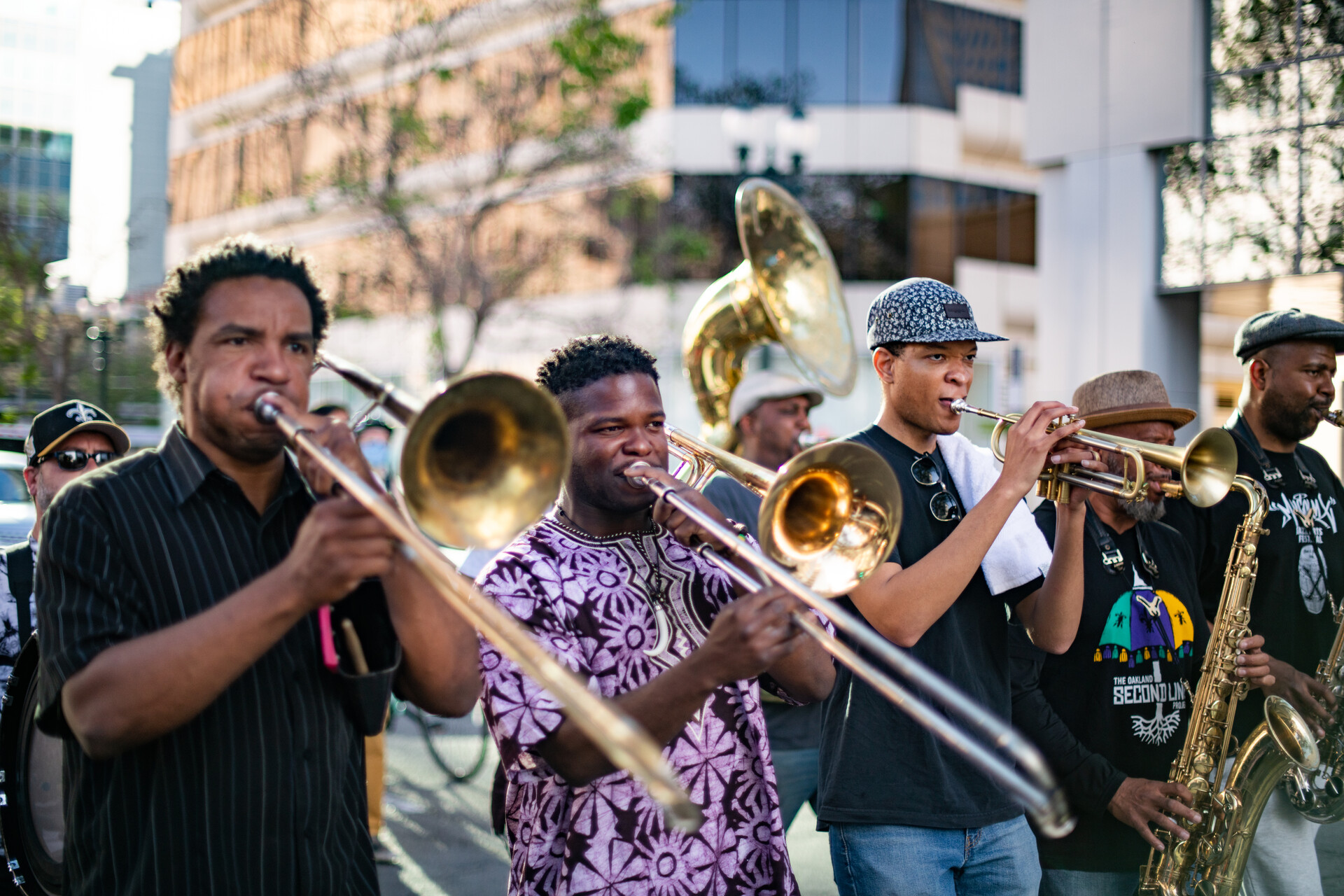
It’s been 30 years since the uprising in Los Angeles after the police officers who mercilessly beat Rodney King — the first viral video of police brutality — were acquitted. We're 13 years since the fatal shooting of Oscar Grant by a BART police officer, the first viral video of a police killing of a Black man captured by cellphone cameras and spread on social media. We’re almost two years since George Floyd was murdered by a police officer in Minneapolis, his death shared widely on social media.
The shooting in Buffalo is yet another reminder that Black life in America is as fragile now as it was when the enslaved were emancipated.
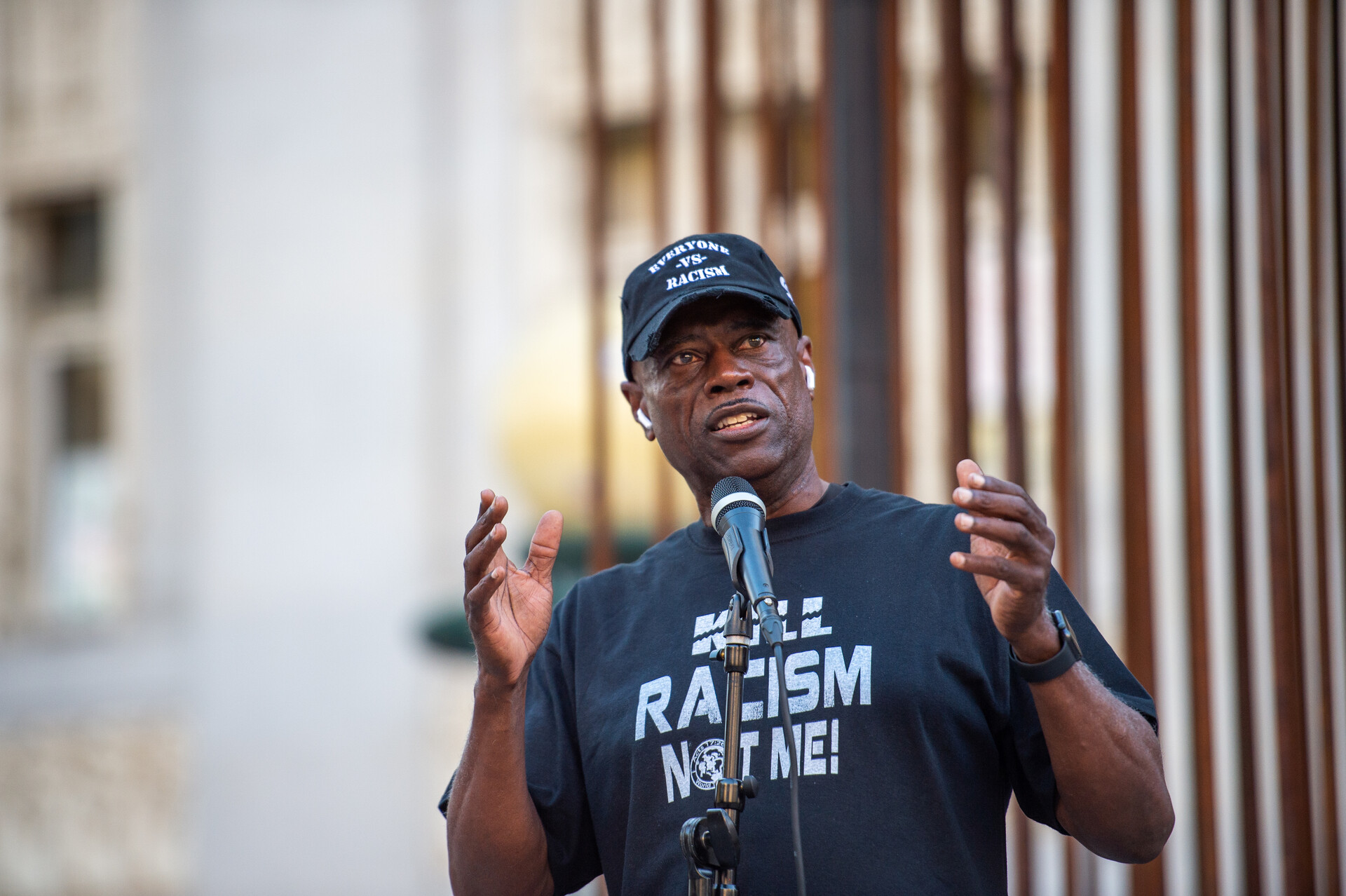
Politicians across the country are moving to disenfranchise Black voters by rolling back voting rights and drawing redistricting maps that dilute Black voting power. In California, Black and brown voters organized to create the Bay Area’s most diverse congressional district to ensure better representation only to see a 77-year-old white man endorsed as the incumbent by the state Democratic Party.
Reproductive rights are on the precipice of being overturned by the Supreme Court, and political capital in some corners of America is gained by denying the truth about the 2020 presidential election.
Here’s an undeniable truth: An 18-year-old white man, armed with a high-powered rifle and racist, anti-immigrant views and the belief that white Americans are being replaced by people of color, drove 200 miles to a Black neighborhood to kill Black people shopping in a grocery store.
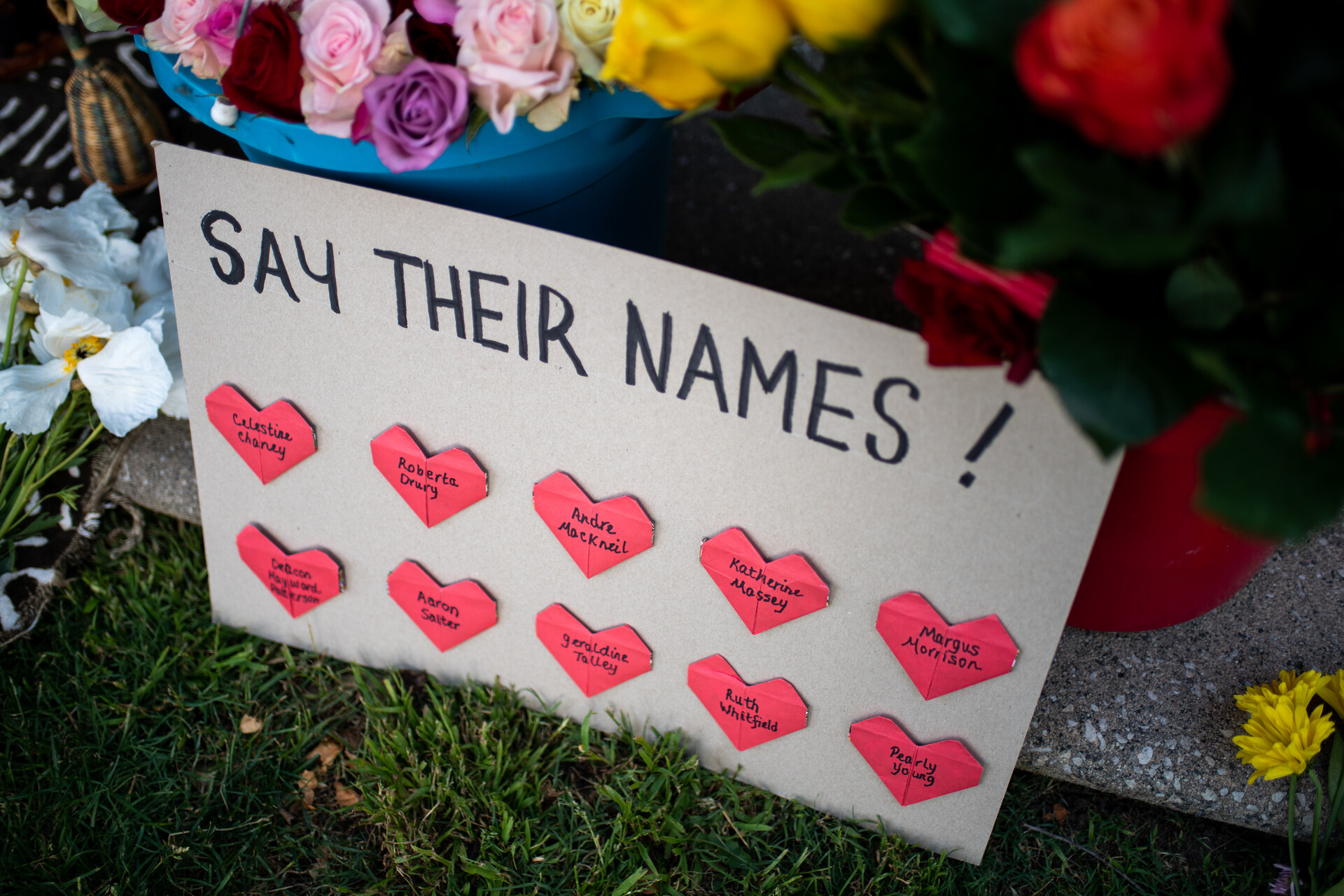
As my colleagues Alex Hall and Julie Small reported earlier this week, domestic extremism is on the rise in California and America.
“What’s clear is we can’t keep treating acts of white supremacy as one-off crimes committed by supposed lone wolves suffering from mental health problems,” Erika Smith, a Los Angeles Times columnist, recently wrote. “We also can’t keep giving a pass to conservative pundits and Republican politicians who directly or indirectly encourage adherence to the ‘Great Replacement’ theory or any other tenet of racism or extremism.”
That’s the truth.
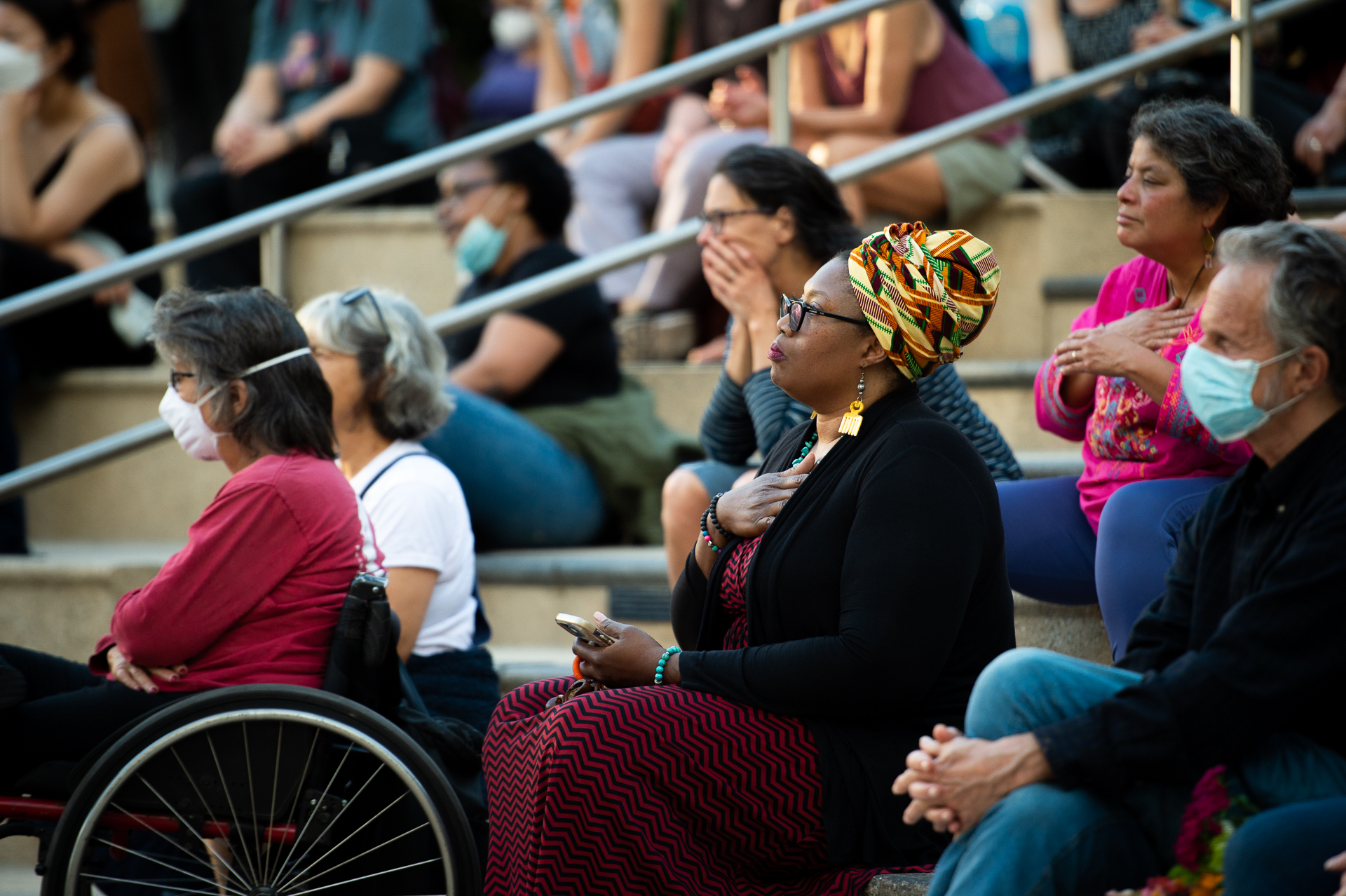
Before the vigil, I followed the second-line processional down Broadway, but stopped at Oakstop, a co-working space, where Dieudonné Brou was preparing for a meeting of the DetermiNation Black Men’s Group, a cultural healing and social justice program for young Black men. I asked Brou, who works for Urban Peace Movement, what he felt after he heard about the massacre.
“They will go to great lengths to cause terror on Black folks, on Black bodies, on Black spaces — more importantly on the Black mind,” said Brou, referring to symbolic violence, a term sociologists use to describe the hierarchical leverage that groups exert over others deemed inferior. “This man drove 200 miles, killed 10 people, but think about the effects it’s gonna have on millions of Black folks. It’s gonna stick with us.
“It’s like a movie that never ends.”
